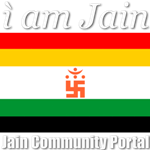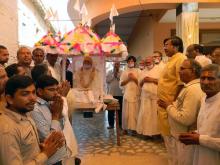News Dated:
Tuesday, 11 August, 2015
City:
Jaipur, Rajasthan
10 August 2015 held that the Jain practice of starvation till death to achieve salvation is illegal and is punishable offence under the provisions of the Indian Penal Code. The judgment needs reconsideration and need to be challenged on several grounds:
- This judgment mentions that santhara is violation of human rights - Every individual has the right to refuse medical treatment or life-sustaining resources. This right is recognized even in countries like the Netherlands, Belgium, Switzerland, and the US state of Oregon.
- This judgment compares santhara to suicide or sati practice – Santhara is a voluntary act, which is carried out with full knowledge and intent. Santhara is not about dying of hunger or thirst. It is about letting go of sensual pleasures and passions, greed, anger, deceit and ego. A person cannot undertake Santhara unless he or she has permission from the family and an ascetic. This requirement of permission is the crucial difference between Santhara and suicide. It is different from euthanasia as well, in which generally someone else makes the decision of ending a life, while Santhara is voluntary. Hence, Santhara practice should not be compared with suicide, euthanasia or sati practice (which was a forced practice).
- Even other religions, such as, Hindus practice Santhara in some form or the other. For example, Prayopavesa or Samadhi. In Hinduism, even Lord Rama had taken Jal Samadhi to end his life. To term this practice of achieving salvation as suicide clearly needs rethought by the Honorable High Court.
- Many people keep fast in our country for God. If such a person dies during the course of such fast, should it be regarded as suicide?
- The court held that the respondents have failed to establish 'Santhara' as an essential religious practice without which the following of Jain religion would not be possible. This right to practice Santhara is clearly provided in the Pratikaman Sutra in Shravakji’s Anuvrat. The Pratikaman Sutra clearly provides that when all the purposes of life have been served or when the body becomes unable to serve any purpose, a person could if he/she wishes take Santhara. The Honarable Court seems to have seriously erred by mentioning that there is no evidence or material to show that Santhara has been practiced by persons professing Jain religion even prior to or after the promulgation of the Constitution. The Court ought to have looked properly into Indian history. 3 (three) prominent names - the end of Mysore Gangas, Rashtrakuta Empire and Chandragupta Maurya came with Sallekhana/Santhara.
- Article 25, 29 and 30 gives one the right to religion and this judgment attempts to take away this fundamental right. This judgment seems to adopt bias approach when the practice has been recognized even in other religions.
News Source:
FB wall of Rishabh Jain


Comments
Santhara
Santhara is the base , it is the principal of Jainism. Jainism , the most ancient and a scientifically precised Dharma of India. Closing/banning/criticising Santhara, is doing the same with a religion(jainism)
Add new comment